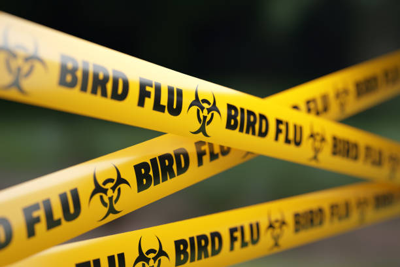Earlier this month, staff at Lincoln Park Zoo shared the news that two animals had succumbed to the avian flu, leading zoo officials to close the McCormick Bird House. According to WTTW/Channel 11, the bird house will remain closed until further notice to safeguard the birds and other zoo residents. In response to the growing number of cases, zoos across the country have implemented similar precautionary measures as more animals fall ill and others die from the widespread bird flu outbreak.
Teal, a Chilean flamingo recently hatched in the fall, died on Jan. 8. “She was known for her curious and positive interactions with her keepers. She had a special bond with the zoo's team, as they worked closely with her to help her adapt to her new environment. Teal's playful and outgoing personality made her a beloved member of the zoo's flamingo flock,” stated a spokesperson from the zoo.
A seven-year-old harbor seal named Slater was lost on Jan. 9. His strong bond with his keepers makes this loss extremely difficult for all zoo staff. The zoo described Slater as an “affectionate and intelligent animal who had been a part of the zoo family for many years. He was particularly known for his playful behavior and his interactions with both the keepers and visitors.”
HPAI (highly pathogenic avian influenza, a.k.a. the bird flu) is highly contagious and mostly spread by free-ranging wild waterfowl, such as ducks and geese. Although the definite cause of death is unknown, it is suspected that the virus was spread through the water in the habitats of these animals. A spokesperson from the zoo states that zoo visitors are not at risk of contracting HPAI from zoo animals during their visits.
Precautionary measures have been instituted throughout the zoo through a multi-tier proactive HPAI Response Plan. Animal caretakers will be closely monitoring the CDC’s HPAI reports and changes in animal health and behavior. Additional personal protective equipment such as gloves and face masks will be worn, removing any opportunities for cross-contamination between species. The HPAI Response Plan also includes the closure of the McCormick Bird House until further notice. As these extensive measures to safeguard the zoo’s animals are being carried out, pet owners should also be vigilant.
How to protect your pet
Following some simple steps and abiding by health guidelines, as urged by Seth Magle, Ph.D., the director of the Urban Wildlife Institute, will help keep your pet healthy and safe.
“To protect yourself and your pet, do not handle wildlife,” says Magle. If you see a bird in distress or deceased, do not touch it. If you are concerned about the cause of illness or death, he adds, contact your local animal control. They can help with the safe disposal of the animal. The Illinois Department of Natural Resources (IDNR) can also provide guidance on whether the bird should be tested for bird flu or other diseases.
Limit pets’ exposure to wild birds by keeping them indoors or closely supervised when outdoors. Avoid allowing cats to roam free outdoors and avoid walking dogs near areas where birds gather, such as ponds, parks or wetlands. If your dog’s or cat’s paws or body comes in contact with a dead bird or standing water, wash the affected area with soap and water immediately.
Keep pet food and water indoors, as it can attract wild birds and other animals that may carry the virus. Also, make sure your dog does not drink from standing water, such as puddles or ponds.
Monitoring your pet’s health, keeping an eye out for any signs of illness (such as coughing, sneezing or unusual behavior) is imperative for detecting bird flu. If you notice any symptoms, contact your vet right away. Early detection is crucial in successful and effective treatment.
Although there is no vaccine for the bird flu, ensuring your pet is up to date on all recommended vaccines is an added layer of protection.
Stay informed about local health advisories and updates regarding bird flu in your area. Follow directions for caution and, if needed, adjust your pet’s daily care routine accordingly.
Following these proactive steps to protect your pets during this outbreak of bird flu is essential for their health and well-being. Just as the animals at Lincoln Park Zoo are being closely monitored, pet parents must also remain vigilant in ensuring that their furry companions stay safe from potential threats.








(0) comments
Welcome to the discussion.
Log In
Keep it Clean. Please avoid obscene, vulgar, lewd, racist or sexually-oriented language.
PLEASE TURN OFF YOUR CAPS LOCK.
Don't Threaten. Threats of harming another person will not be tolerated.
Be Truthful. Don't knowingly lie about anyone or anything.
Be Nice. No racism, sexism or any sort of -ism that is degrading to another person.
Be Proactive. Use the 'Report' link on each comment to let us know of abusive posts.
Share with Us. We'd love to hear eyewitness accounts, the history behind an article.